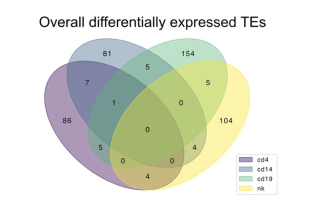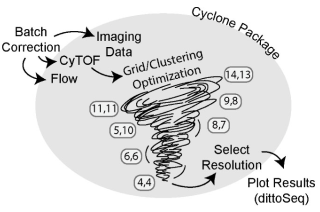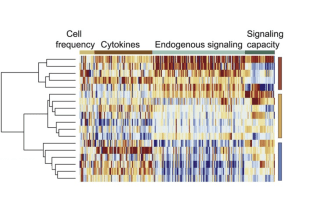
CoLabs has computational biologists to assist UCSF and external investigators organize, visualize, and interpret large, multi-modal datasets.
CoLabs offers varying levels of assistance. For collaborations, our CoLabs Teams develop and customize new methods to analyze your data and help you understand your results.
The Data Science CoLab creates tools to process, analyze, and visualize complex datasets. We also build models to simulate various biological systems. These projects typically involve a dedicated scientist for an extended period of time working with collaborators, such as with CoProjects. While we do not provide analysis as a fee-for-service, we do offer consultations during office hours. Please contact the Data Science CoLab to schedule an appointment, usually on Tuesdays 2-4pm.
CoLabs Teams are also available for advising. Many of our individual platforms includes standard analysis support and should be discussed when planning your experiment:
| Data type | Contact | Support |
|---|---|---|
| Flow and mass cytometry | Flow Cytometry CoLab | workstations with specialized programs to process and analyze data |
| Genomics | Genomics CoLab | sequence alignment, normalization, identification of differential gene expressions |
| Optical microscopy | BIDC | workstations for image visualization, processing, and analysis; software training; collaborations to customize image analysis |
| Spatial transcriptomics | Genomics CoLab | visualization and analysis |
| Spatial proteomics | BIDC | visualization and analysis |
| General omics and multiomics | Data Science CoLab | tool access, analysis consulting, and project collaborations; we do not offer analysis as a fee-for-service |
For data generated outside CoLabs, please contact the corresponding CoLab listed above to discuss options. We may be able to assist you depending on scope and availability.
One of the goals of CoLabs is to promote standardized protocols and data sharing. Our Data Science CoLab develops new methods for sample processing, panels, and analysis tools for cytometry experiments. We share these tools and scripts on our GitHub site.
In our Cyclone analysis pipeline, we integrated multiparametric data from mass cytometry, spectral flow cytometry, and multiplexed immunofluorescence. This pipeline can be used in a variety of biological contexts, and the Cyclone R package and documentation are accessible here.
Together with ImmunoX, CoLabs curates and maintains the UCSF Data Library which includes many of the datasets generated in CoLabs. These annotated datasets are open for researchers to explore and utilize. You can find numerous data on a variety of human samples and diseases. For more information, please contact Data Science CoLab.
1. Can you help me analyze my data?
It depends on the nature of the dataset. Many of our platforms, such as genomics, include standard analysis. For flow and mass cytometry data and optical microscopy images, you may reserve workstations with specialized software to aid in visualization, processing, and analysis. BIDC can also work with you to customize and develop tools and methods for image processing and analysis. For complex, multi-modal research projects, please contact Data Science CoLab to discuss options.











